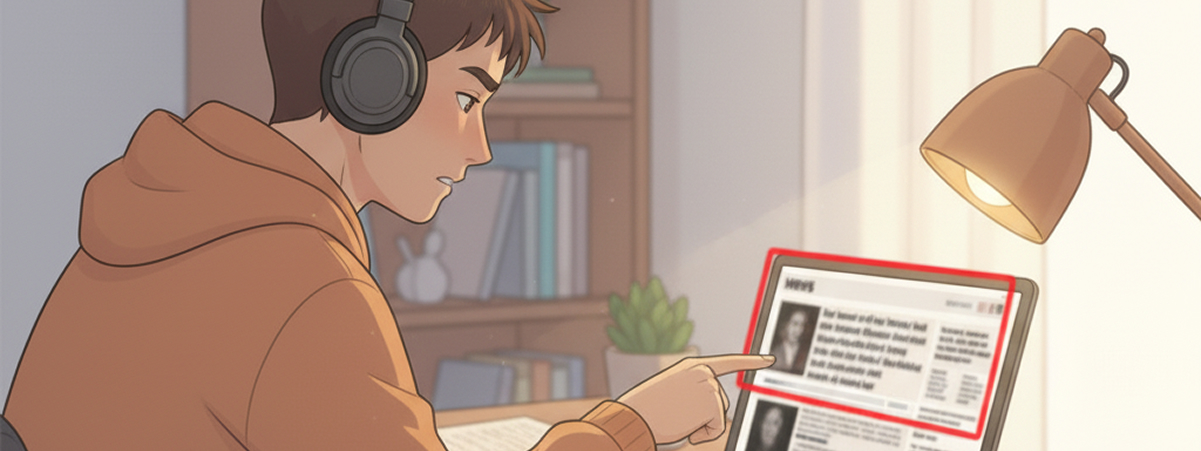"See, I was right!" Do you say this phrase often? Do you tend to retain only information that confirms your opinions while ignoring what contradicts them? Do you mainly read sources that think like you? If so, you're probably a victim of confirmation bias, one of the most widespread and insidious mental traps of our time.
What is confirmation bias?
Confirmation bias is our natural tendency to search for, interpret, and remember information that confirms our preexisting beliefs while neglecting what contradicts them. Our brain functions like a "selective filter" that only lets through what reinforces our convictions.
This cognitive distortion pushes us to favor evidence that proves us right and to minimize, distort, or ignore what questions our certainties. It's as if we wore tinted glasses that only let us see a biased version of reality.
5 signs you're in confirmation bias
1. Unilateral information selection
You mainly consult media, websites, or people who share your opinions, systematically avoiding opposing viewpoints.
2. Biased interpretation of facts
When faced with ambiguous information, you automatically interpret it in a way that confirms your position, even if other readings are possible.
3. Selective memorization
You perfectly remember arguments that prove you right but strangely forget those that contradict you.
4. Automatic rejection of contradictions
When someone presents facts that question your beliefs, your first reaction is to seek to discredit them rather than examine them.
5. Feeling of intellectual superiority
You're convinced that those who don't think like you are misinformed, manipulated, or less intelligent.
Where does this need for confirmation come from?
Cognitive economy
Our brain seeks shortcuts to process information more quickly. Confirming what we already know requires less effort than questioning our certainties.
Ego protection
Being wrong can be experienced as a narcissistic wound. Confirmation bias protects us from this pain by preserving our sense of competence.
Need for social belonging
Sharing the same beliefs as our group reinforces our sense of belonging. Questioning these beliefs can make us fear exclusion.
Fear of uncertainty
Uncertainty generates anxiety. Maintaining our certainties, even erroneous ones, gives us the reassuring illusion of understanding the world.
The dangers of mental filtering
Opinion polarization
By only associating with people who think like us, our positions become radicalized and more extreme.
Irrational decisions
Based on incomplete or biased information, our decisions can prove disastrous in our personal or professional lives.
Deteriorated relationships
The inability to hear other viewpoints can create conflicts and harm our family, friendly, or professional relationships.
Intellectual stagnation
By refusing to question our beliefs, we deprive ourselves of learning and personal evolution.
5 strategies to escape your bubble
1. Practice informational diversity
Intentionally consult varied information sources, even those that don't align with your views. Impose a "balanced media diet" on yourself.
2. Play devil's advocate
For every strong opinion you have, force yourself to find three valid arguments that contradict it. This exercise develops your mental flexibility.
3. Ask questions rather than assert
Instead of "You're wrong because...", try "Can you explain why you think that?" This curious approach opens dialogue.
4. Look for counter-examples
For every generalization you make, actively search for examples that contradict it. This habit nuances your thinking.
5. Cultivate intellectual humility
Accept that you might be wrong and that changing your mind is a sign of intelligence, not weakness.
AI help to broaden your perspective
An app like Anima can detect when your speech reveals confirmation bias and suggest questions that broaden your reflection.
Example dialogue with Anima's AI:
User: "Another article that confirms what I've been saying for months! People who think otherwise really don't know anything about it."
Anima: "I notice you seem very satisfied to find information that confirms your viewpoint. That's natural, but perhaps it would be interesting to explore: what arguments would an intelligent person who thinks differently present? What could make you change your mind?"
This mood tracker functionality helps you become aware of your confirmatory tendencies and develop a more critical and open mind.
Key takeaways
- Confirmation bias makes us live in an impoverished informational bubble
- Our brain naturally favors what confirms our existing beliefs
- This tendency can make us make bad decisions and harm our relationships
- Actively seeking contradictory information enriches our understanding
- Intellectual humility is the key to a truly free and evolved mind
And you, in what area do you most tend to see only what confirms your opinions? Share in the comments and discover that opening yourself to other perspectives can transform your worldview.
